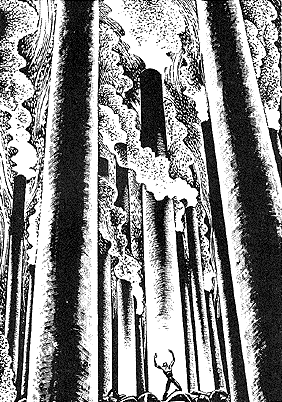 |
|||||
|
|
|
  Based on excerpts from When Corporations Rule the World by David C. Korten, Kumarian Press and Berrett-Koehler Publishers, 1995
| |||||||||
| In the quest for economic growth, free market ideology has been embraced around the world with the fervor of a fundamentalist religious faith. | |||||||||
| Proponents of corporate libertarianism regularly pay homage to Adam Smith as their intellectual patron saint... Ironically, Smith's epic work The Wealth of Nations, which was first published in 1776, presents a radical condemnation of business monopolies sustained and protected by the state. | |||||||||
| We should be more than skeptical of an economic model that calls on us to give up all loyalty to place and community, says we must give free reign to securities fraud and corporate monopolies and deny workers the right to organize, and tells the poor to run faster and faster after a train they have no chance of catching—so that a few hundred thousand people can become multi-millionaires by destroying nature and depriving others of a decent means of livelihood. | |||||||||
| Communism called for all power to the state. Market capitalism calls for all power to the market—which in a globalized economy means rule by global corporations and financial markets. Both ideologies lead to the concentration of power in distant and unaccountable institutions. | |||||||||
| So sacred have growth and free trade become in our modern culture that only rarely do we find the courage to ask why they should be given precedence over the needs of people and nature? | |||||||||
|
Needless to say, it hasn't been easy to create an economic system able to produce 358 billionaires while keeping another 1.3 billion people living in absolute deprivation. It took long and dedicated effort by legions of economists, lawyers, and politicians on the payrolls of monied interests to design and implement such a system. It required a radical altering of the dominant culture and the restructuring of many important institutions. It will take a similarly committed effort on the part of civil society to design and put in place an economic system supportive of economic justice and environmental sustainability.
A Citizen Agenda to Tame Corporate Power, Reclaim Citizen Sovereignty, and Restore Economic Sanity | |||||||||
|
Based on documents from http://treesandpeople.lbutv.slu.se/welcome.html Also see:
|